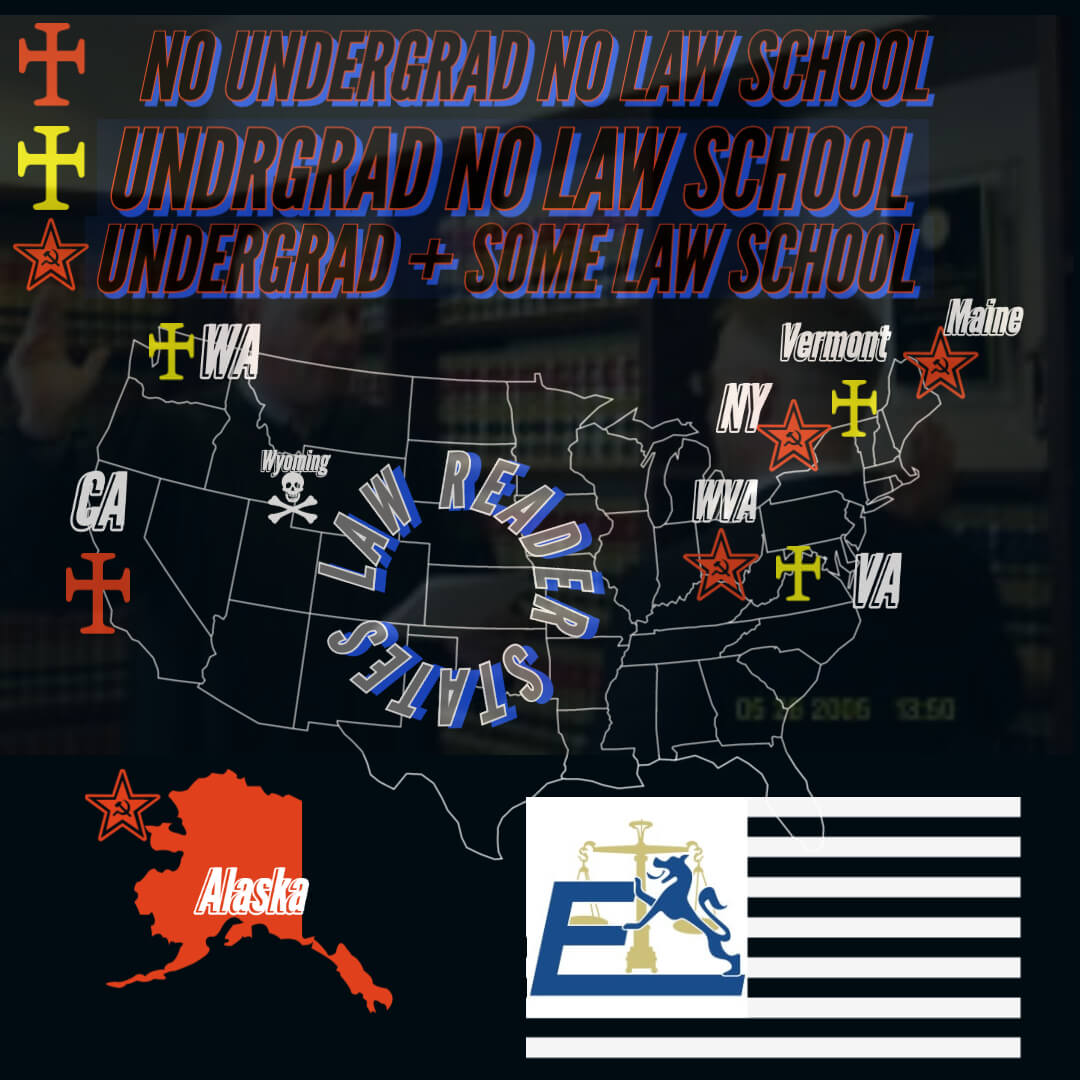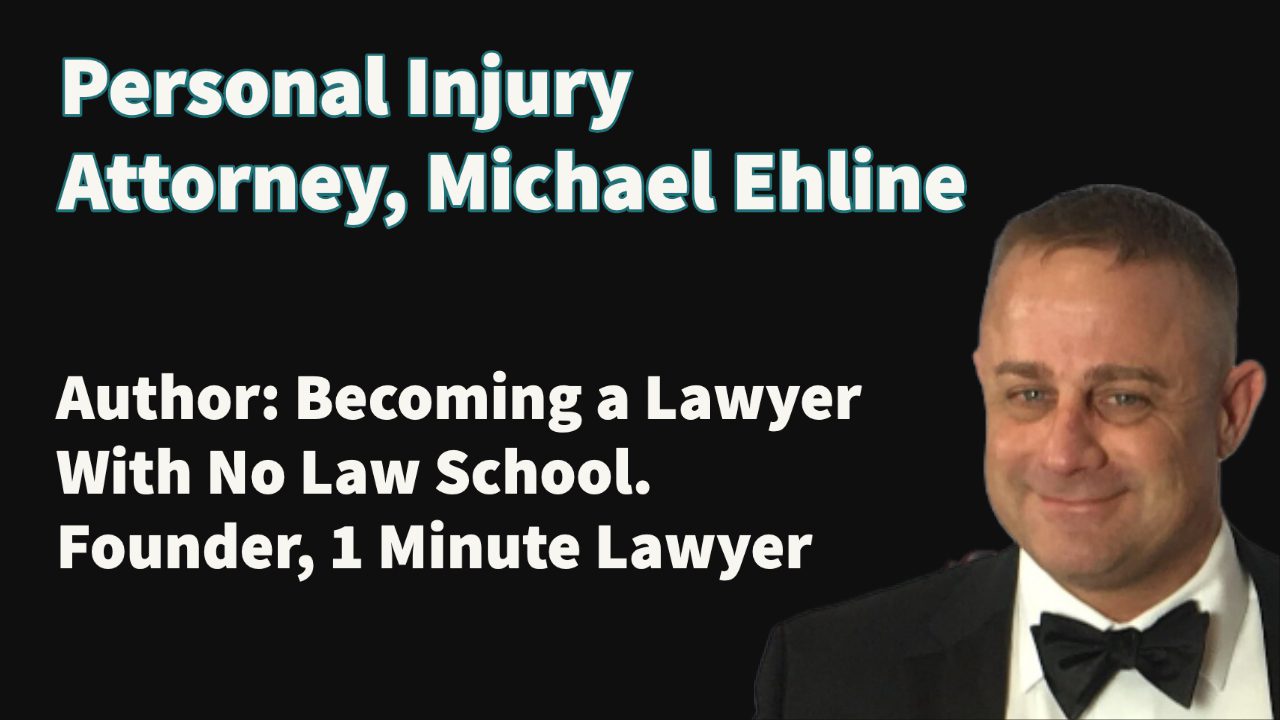How To Become A Lawyer In Virginia Without Law School

For generations, law school has been considered the quintessential gateway to a legal career. However, a little-known path exists in Virginia, offering a rigorous, alternative route to becoming a licensed attorney: the Law Reader Program. This apprenticeship allows aspiring lawyers to bypass the traditional classroom setting and gain practical experience while studying under the tutelage of a seasoned legal professional.
This article delves into the intricacies of Virginia's Law Reader Program, exploring its requirements, challenges, and potential benefits. We will examine the experiences of those who have successfully navigated this path, the perspectives of legal experts on its efficacy, and the program's standing within the broader legal landscape.
The Nut Graf: Decoding the Law Reader Program
The Law Reader Program, officially known as the Law Office Study Program, is a unique pathway to legal licensure offered by the Virginia Board of Bar Examiners. It allows individuals to study law under the supervision of a qualified attorney or judge, accumulating practical experience and theoretical knowledge over a period of three years. Successful completion of the program, coupled with passing the Virginia Bar Exam and meeting character and fitness requirements, makes an individual eligible to practice law in the Commonwealth.
Eligibility and Requirements
The initial hurdle involves finding a suitable mentor. This individual must be a judge of a court of record or a practicing attorney who has been actively engaged in the practice of law for at least ten years in Virginia.
The supervising attorney must also have an office in Virginia where the applicant will be able to do most of their studying. The supervisor must devote at least ten hours per week for the applicant's studies.
Applicants must demonstrate a genuine commitment to the study of law and possess the intellectual capacity to succeed in the program. A bachelor's degree is not necessarily required, but a high school diploma or its equivalent is a must.
The Curriculum and Learning Process
The curriculum is comprehensive, covering essential areas of law such as contracts, torts, criminal law, property law, and civil procedure. The Virginia Board of Bar Examiners provides a suggested course of study, but the specific content and methodology are largely determined by the supervising attorney.
Learning typically involves a combination of textbook study, case analysis, legal research, and practical application through assisting with real cases. Aspiring lawyers gain hands-on experience by drafting legal documents, conducting client interviews, and observing courtroom proceedings.
Regular examinations are conducted by the supervising attorney to assess the applicant's progress. These internal evaluations are crucial for ensuring that the candidate is adequately prepared for the rigors of the Virginia Bar Exam.
Application and Approval Process
Prospective participants must submit a detailed application to the Virginia Board of Bar Examiners. This application includes information about the applicant's background, qualifications, and the identity of their supervising attorney.
The Board reviews the application to ensure that all requirements are met and that the proposed supervisor is qualified to provide adequate instruction. An interview with the Board may be required.
Upon approval, the applicant is officially enrolled in the Law Reader Program and can begin their three-year course of study. This is a critical step, solidifying the legal standing of their apprenticeship.
The Experience: Challenges and Rewards
Individuals who successfully complete the Law Reader Program often describe it as a challenging but rewarding experience. The rigorous curriculum, coupled with the demands of practical work, requires immense dedication and self-discipline.
One of the biggest challenges is the lack of a structured classroom environment. Unlike law students, Law Reader Program participants must rely on their own initiative and the guidance of their mentor to navigate the complexities of the law.
However, the program also offers unique benefits. Participants gain invaluable practical experience that is often lacking in traditional law school settings. They develop close working relationships with experienced attorneys, receiving personalized guidance and mentorship.
"The Law Reader Program provided me with a practical foundation that I wouldn't have gained in law school," says *Jane Doe*, an attorney who successfully completed the program. "I was able to apply what I learned directly to real cases, which gave me a significant advantage when I started practicing."
Perspectives and Controversy
The Law Reader Program has its advocates and critics within the legal community. Supporters argue that it offers a valuable alternative for individuals who may not be able to afford or attend law school.
Critics, however, express concerns about the quality and consistency of legal education provided through the program. They argue that the lack of standardized curriculum and oversight may lead to disparities in knowledge and skills among graduates.
The American Bar Association (ABA) generally favors traditional law school education, and the Law Reader Program is not recognized as a substitute for a law degree in most jurisdictions.
Examining Bar Passage Rates
Data on bar passage rates for Law Reader Program graduates is limited, but available figures suggest that they may face a slightly lower success rate compared to law school graduates. However, this disparity may be attributed to factors such as self-selection and the program's accessibility to individuals from diverse backgrounds.
Anecdotal evidence suggests that diligent preparation and a strong mentor-mentee relationship are crucial for success on the bar exam. Rigorous self-study and consistent feedback are essential.
The *Virginia Board of Bar Examiners* consistently monitors bar passage rates for all candidates, including those from the Law Reader Program, to identify areas for improvement and ensure the program's continued effectiveness.
The Future of Alternative Legal Education
The Law Reader Program in Virginia represents a unique, albeit demanding, pathway to becoming a lawyer without attending law school. It underscores the possibility of alternative legal education models and the potential for increased accessibility to the legal profession.
While the program may not be suitable for everyone, it offers a viable option for motivated individuals who are willing to dedicate themselves to rigorous study and practical training. Its future likely hinges on its continued success in producing competent and ethical lawyers.
As the legal landscape evolves, and discussions around access to justice intensify, alternative pathways like the Law Reader Program may gain increased attention. Its effectiveness and relevance in the modern legal world will continue to be debated and evaluated.

















![How To Become A Lawyer In Virginia Without Law School How Long It Takes To Become A Lawyer? [timeline Breakdown] | Sheria Na](https://sherianajamii.com/wp-content/uploads/2023/01/How-to-become-a-lawyer-1024x768.png)
